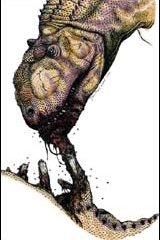
Results from the ASCOT (Anglo Scandinavian Cardiac Outcome Trial) study have shown that patients receiving the cholesterol controlling drug, atorvastatin, are more than a third less likely to have heart attacks, and more than a quarter less likely to suffer from strokes.
The results of the study, announced today at the American College of Cardiology annual scientific session in Chicago, USA, and simultaneously published online in the Lancet, show that in a study of more than 10,305 people w

Scientists have been studying mutant plants that take an unusually long time to flower. At the SEB conference on Thursday 3 April, researchers from Horticulture Research International will present the results of their investigation into a RING finger protein (RING stands for Really Interesting New Gene) involved in regulating when a plant will flower.
Dr Stephen Jackson and colleagues have been working with mutants that have altered flowering times. One particular mutant that takes a long ti

Scientists at Horticulture Research International have been studying natural mutations in vegetables in the hope of identifying the genes responsible for limiting uptake of caesium. The results of their quest, to be presented at the annual SEB conference suggest ‘safe’ crops could one day be grown on radioactive soil.
Four million people in Belarus, Russia and the Ukraine currently live in areas where 137Cs deposition densities to soils exceeded 37 kBq m-2 following the Chernobyl accident in

Many shark species, including the great white and mako, swim at speeds greater than their morphology should allow. Dr. Adam Summers (University of California) has discovered they achieve this speed by changing the stiffness of their body by pressurising their thick, inflexible skin. “This study could help answer questions about the evolution of the shark, especially why sharks abandoned a bony skeleton in favour of a cartilage structure,” said Dr. Summers who will be presenting his findings on Frida

The broad barred goby is a coward. A sweeping statement you may say, but even though the goby is poisonous to its predators, the cowardly fish still spends almost all its time cowering in an inaccessible coral home 20-30 cm in diameter. A new study, to be presented to the Society for Experimental biology on Wednesday 3rd April, reveals how the fish has adapted to extremely low oxygen concentrations (hypoxia) in order to avoid venturing out from its coral den.
Dr. Göran Nilsson, from the Univ

The exotic island of Madagascar, situated off the southeast coast of Africa, was a dangerous place to live 65 million to 70 million years ago. Crocodiles swarmed in the rivers, and a 30-foot-long, meat-eating dinosaur named Majungatholus atopus stalked the plains. Like most carnivorous dinosaurs, Majungatholus had teeth perfectly suited for ripping into flesh. But what was on the menu? Until now, this question has remained a mystery. In a report published in the April 3 issue of the Journal

– new calculation confirms standard model of particle physics. Contribution of hadronic vacuum polarization determined with unprecedented accuracy. The magnetic moment of the muon is an important precision parameter for…
Technique may prevent formation of unwanted waves that siphon off needed energy. Heating plasma to the ultra-high temperatures needed for fusion reactions requires more than turning the dial on a…

An international team of astronomers, led by researchers from the Astronomical Observatory of the University of Warsaw, have identified a new class of cosmic X-ray sources. The findings have been…

How deubiquitinases USP53 and USP54 cleave long polyubiquitin chains and how the former is linked to liver disease in children. Deubiquitinases (DUBs) are enzymes used by cells to trim protein…

Conceptual blueprint to analyze experimental catalyst data. Machine learning (ML) models have recently become popular in the field of heterogeneous catalyst design. The inherent complexity of the interactions between catalyst…

Antibody that Neutralizes Inhibitory Factors Involved in Nerve Regeneration Leads to Enhanced Motor Function after Acute Spinal Cord Injury. Researchers at 13 clinics in Germany, Switzerland, the Czech Republic and…

How simulations help manufacturing of modern displays. Modern materials must be recyclable and sustainable. Consumer electronics is no exception, with organic light-emitting diodes (OLEDs) taking over modern televisions and portable…

“Neurons that fire together, wire together” describes the neural plasticity seen in human brains, but neurons grown in a dish don’t seem to follow these rules. Neurons that are cultured…

The quest for sustainable energy solutions has been a major focus of scientific research for decades. Solar energy, a clean and renewable source, has emerged as a promising alternative to…

With a processing speed a billion times faster than nature, chip-based laser neuron could help advance AI tasks such as pattern recognition and sequence prediction. Researchers have developed a laser-based…

New technology could remotely identify various types of plastics, offering a valuable tool for future monitoring and analysis of oceanic plastic pollution. Researchers have developed a new hyperspectral Raman imaging…

Artificial Intelligence (AI) has established a strong presence across industries, large and small. The “VoBaKI” research project has empowered small and medium-sized enterprises (SMEs) with an innovative tool to independently…